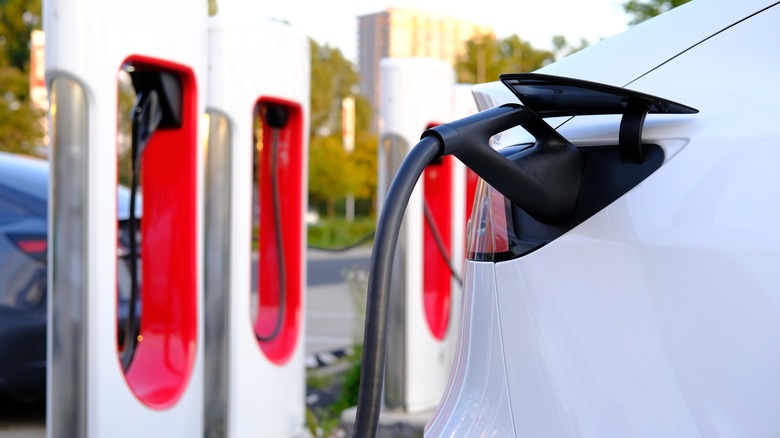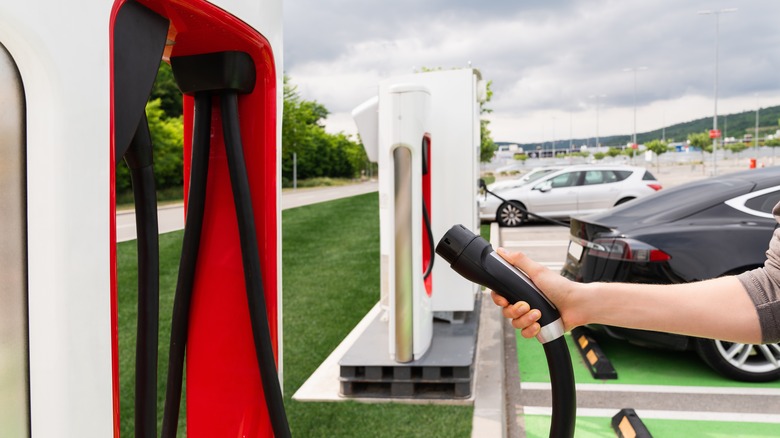The Automakers Tesla Still Needs To Convince To Adopt Its EV Charging Plug
Though some aspects of his business acumen might be questionable, Tesla CEO Elon Musk hit a home run when the company decided to name its proprietary charging plug the North American Charging Standard (NACS). At the time, this nomenclature was pure hyperbole because the plug wasn't sanctioned by any governing or regulatory body as an official standard, but with the recent adoption by Ford, General Motors, and now Rivian, the NACS is well on its way to actually becoming the de facto standard plug for EV chargers. In fact, the solar electric vehicle manufacturer Aptera has actually petitioned Congress to make NACS connections the official standard.
For the time being, automaker Stellantis appears to be the only major U.S. manufacturer to resist the siren song of the NACS plug. That might be increasingly difficult, however, because Stellantis' subsidiary Dodge has well-publicized plans to go fully electric with its lineup following the 2023 model year. Stellantis' other high-profile U.S. brand, RAM, will likely be a much slower transition to all-electric since it currently only sells large pickup trucks. Still, the highly anticipated RAM 1500 REV all-electric truck is coming in 2025, paving the way for future progress.
Most of the NACS resisters are foreign
Foreign manufacturers selling in the U.S. market have been conspicuously absent from jumping on the NACS plug bandwagon, instead opting for the Combined Charging System (CCS) type plug which is prevalent in the rest of the world. If Tesla truly wants to dominate the EV charging scene, it would be well advised to court Volkswagen, Hyundai Motor Group (Hyundai and Kia), BMW, and Mercedes-Benz, which make up the top four non-domestic EV sellers in America as of January 2023.
As it turns out, it may not take much convincing to bring those brands on board since Tesla operates approximately 12,000 Supercharging stations spread out across the United States and Canada, a figure which represents 60% of all fast-charging stations available to U.S. drivers. Furthermore, Tesla made its NACS plug technology "open source" last year, meaning that other car manufacturers can now implement the design completely free of charge.
At least for the near future, it appears that CCS and NACS charging plugs will co-exist. To that end, quality adapters are widely available to convert CCS chargers to NACS receptacles, but less so for the opposite conversion — and those that are available typically have limits on charging speed/amperage. With major OEMs like Ford and Rivian rolling out NACS to CCS adapters as a stopgap measure until their vehicles implement NACS, a larger, high-quality selection of such adapters should be forthcoming.

